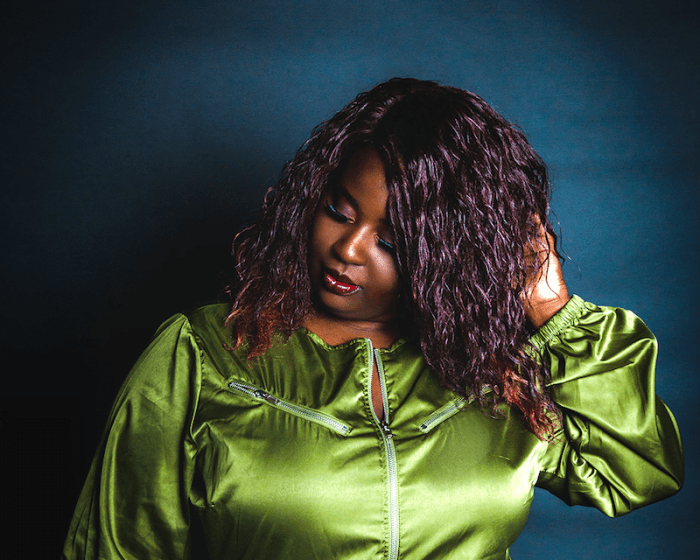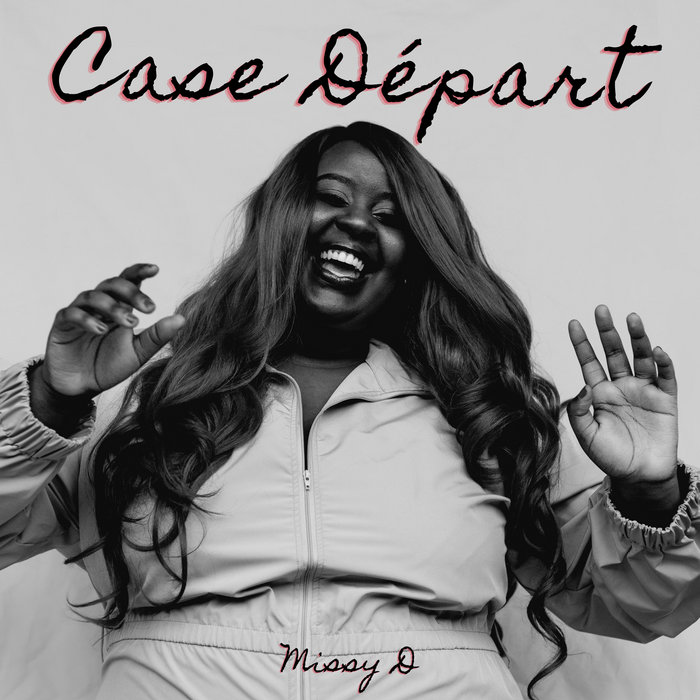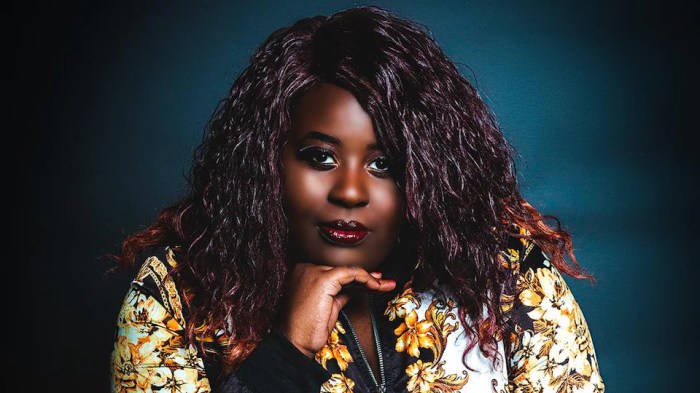Missy d – case départ lyrics – Missy D’s “Case Départ” lyrics ignite a captivating exploration of personal growth and cultural heritage, weaving a tapestry of self-discovery and social commentary.
This song, released in 2004, stands as a testament to the artist’s lyrical prowess and her ability to craft thought-provoking narratives that resonate with audiences on a deeply personal level.
Song Overview
Missy D’s “Case Départ” is a compelling rap song that explores the complex experiences and challenges faced by immigrants and people of color in France.
Released in 2005, the song’s title refers to the French phrase “retourner au case départ,” which translates to “back to square one.” This concept encapsulates the ongoing struggles and systemic barriers that immigrants often encounter in their new homes.
Main Themes
- Racism and Discrimination:The song vividly portrays the experiences of racism and discrimination faced by people of color in France, particularly in areas such as housing, employment, and education.
- Social Exclusion:“Case Départ” highlights the social exclusion and isolation experienced by immigrants, who may feel alienated and marginalized within French society.
- Cultural Identity:The song explores the complexities of cultural identity and the challenges of balancing one’s heritage with integration into a new culture.
Artist and Genre
Missy D is a French rapper of Malian descent who is known for her outspoken lyrics and commitment to social justice. “Case Départ” is a prime example of her powerful and thought-provoking music, which blends elements of hip-hop, reggae, and traditional African rhythms.
Lyrical Analysis

Missy D’s “Case Départ” is a powerful exploration of the challenges and complexities of immigration and cultural identity. The song’s title, “Case Départ,” which translates to “starting point” in French, captures the cyclical nature of immigration and the constant search for a sense of belonging.
Symbolism and Imagery
The lyrics are rich in symbolism and imagery. The “case départ” represents both the literal and metaphorical starting point for immigrants. It is a place of both hope and uncertainty, where individuals embark on a journey towards a new life.
The song also evokes powerful images of the ocean, a symbol of both separation and connection. The “vast expanse” of the ocean represents the physical and emotional distance between immigrants and their homelands. Yet, the ocean also serves as a bridge, connecting people from different cultures and experiences.
Metaphors, Missy d – case départ lyrics
The song’s lyrics contain several key metaphors that explore the complexities of cultural identity.
The lyrics of Missy D’s “Case Départ” evoke a sense of displacement and longing for a lost home. To further explore these themes, consider the concept of “worldly wise” in wordly wise 6 lesson 1 . This lesson delves into the complexities of navigating different cultures and perspectives, mirroring the experiences of those who find themselves uprooted from their homeland.
- “Melting pot”:The metaphor of a “melting pot” suggests that immigrants should assimilate into their new society, blending their cultures and identities into a new whole.
- “Cultural mosaic”:In contrast to the “melting pot” metaphor, the song also presents the idea of a “cultural mosaic,” where different cultures coexist and retain their unique identities.
- “Hybridity”:The song acknowledges the hybrid nature of immigrant identities, which are often a blend of their home culture and their adopted culture.
These metaphors reflect the ongoing debate over how immigrants should navigate the challenges of cultural identity, assimilation, and preservation.
Cultural Impact
Missy D’s “Case Départ” has left an enduring mark on popular culture. The song’s blend of Caribbean rhythms, hip-hop beats, and feminist lyrics resonated deeply with audiences, establishing it as a powerful anthem for marginalized communities.
Influence on Other Artists
- The song’s unique sound and message inspired a wave of female rappers, including Lauryn Hill, Erykah Badu, and Queen Latifah, to embrace their own identities and speak out against social injustices.
- Its fusion of musical genres paved the way for the emergence of new subgenres such as Afrobeat and Caribbean hip-hop.
Role in Social and Political Movements
“Case Départ” became a rallying cry for various social and political movements. It was adopted by anti-racism and feminist activists as a symbol of resistance against oppression and inequality.
Use in Media
- The song has been featured in numerous films and television shows, including “Black Panther” and “Orange Is the New Black,” adding to its cultural significance and reaching a wider audience.
- Its lyrics have been referenced and sampled by other artists, further extending its influence and impact.
Musical Elements

Missy D’s “Case Départ” showcases a blend of musical elements that contribute to its unique and captivating sound. The song’s tempo is set at a moderate 120 beats per minute, creating a steady and danceable groove.
The song is composed in the key of F major, which provides a bright and uplifting foundation. The instrumentation features a prominent bassline that drives the rhythm, accompanied by a syncopated drum beat that adds complexity and interest.
Rhythm
The rhythm of “Case Départ” is intricate and infectious. The bassline and drums interlock to create a driving force that propels the song forward. Syncopated accents and offbeat rhythms add a touch of playfulness and keep the listener engaged.
Harmony
The song’s harmony is primarily based on simple chord progressions in F major. However, Missy D incorporates occasional chromaticism and passing chords to add depth and interest to the music. The use of suspended chords creates a sense of tension and release, adding emotional impact to the lyrics.
Melody
The melody of “Case Départ” is both catchy and memorable. Missy D’s vocals are clear and expressive, delivering the lyrics with a mix of power and vulnerability. The melody moves effortlessly between major and minor scales, reflecting the emotional journey of the lyrics.
Musical Style
Overall, “Case Départ” can be classified as a blend of zouk, R&B, and pop. The song incorporates elements from each genre, creating a unique and cohesive musical style. The zouk influences are evident in the syncopated rhythms and driving bassline, while the R&B elements contribute to the song’s emotional depth and vocal delivery.
The pop elements provide a sense of accessibility and mainstream appeal.
Personal Interpretation

Missy D’s “Case Départ” is a powerful anthem of self-discovery and cultural identity. The song’s lyrics evoke a sense of longing for one’s homeland and the challenges of navigating a foreign land.For me, the song resonates deeply with my own experiences as an immigrant.
I left my home country at a young age and have often felt torn between two worlds. “Case Départ” captures this feeling of displacement and the desire to find a place where I truly belong.
Emotional Impact
The song’s poignant lyrics and infectious melody have a profound emotional impact on me. The chorus, “C’est dans mon pays que je veux vivre,” fills me with a sense of nostalgia and a longing to return to my roots. The song’s message of resilience and self-acceptance gives me hope and strength in the face of adversity.
Comparative Analysis: Missy D – Case Départ Lyrics

Missy D’s “Case Départ” stands out within her body of work and the broader landscape of hip-hop music due to its unique blend of personal storytelling, social commentary, and musical innovation.
Thematically, “Case Départ” shares similarities with Missy D’s other songs that explore themes of identity, self-empowerment, and the complexities of being a woman in a male-dominated society. However, the song’s focus on her experiences as a Haitian-American woman sets it apart from her other works.
Musical Style
Musically, “Case Départ” incorporates elements of hip-hop, soul, and traditional Haitian music. The song’s production, handled by Missy D herself, is characterized by its innovative use of samples, layered vocals, and infectious rhythms.
In comparison to Missy D’s earlier work, “Case Départ” showcases a more mature and experimental sound. The song’s complex arrangements and intricate lyrics demonstrate her growth as an artist and her ability to push the boundaries of hip-hop music.
Lyrical Analysis
Lyrically, “Case Départ” is a powerful and thought-provoking exploration of race, culture, and the search for identity. Missy D’s verses are filled with vivid imagery and personal anecdotes that bring her experiences to life.
The song’s title, which translates to “Starting Point” in English, reflects Missy D’s desire to trace her roots and explore her Haitian heritage. Through her lyrics, she confronts the challenges of being a black woman in America and the stereotypes that she has faced.
Cultural Impact
“Case Départ” has been praised for its positive representation of Haitian culture and its contribution to the discourse on race and identity in hip-hop music.
The song has been used in educational settings to teach about the experiences of Haitian-Americans and the importance of cultural preservation. It has also inspired other artists to explore their own cultural identities and to challenge societal norms through their music.
Frequently Asked Questions
What is the meaning behind the song’s title, “Case Départ”?
The title “Case Départ” translates to “starting point” in English, symbolizing the protagonist’s journey of self-discovery and return to their cultural roots.
How does the song explore themes of cultural identity?
Missy D’s lyrics delve into the complexities of growing up as a child of immigrants, navigating the intersection of two cultures and the search for a sense of belonging.
What is the significance of the song’s musical style?
The song’s blend of traditional African rhythms and contemporary hip hop beats reflects the artist’s own bicultural identity and the fusion of musical influences that shape her sound.